By: Alex Murphy
Surf parks are the go-to destination for surfers, of all skill levels, looking to ride a consistent wave outside of the ocean and perfect their skills. But what many don’t expect during their first time at the park is the pool pressure associated with surfing in a new atmosphere – different physical demands to perform under the mental pressures of knowing their wave is coming, knowing everyone is watching them, and having a dollar amount associated with each wave. This article explores the benefits for surf strength coaching and paddle fitness.
Having the physical preparation to remove just that one aspect from a surfer’s mental space can be the difference between a positive first experience and a negative one. The question then becomes, what can the individual do to prepare and what can surf park operators do to provide a good onboarding experience for their guests?
There’s something to be said for practicing paddling.
“There is this high anxiety around how much you pay for that wave and if you miss a wave there’s just this great tension,” shared Rob Case, a paddling instructor who works with surfers both in the ocean and at surf parks, like the WSL Surf Ranch, to help them confidently catch waves.
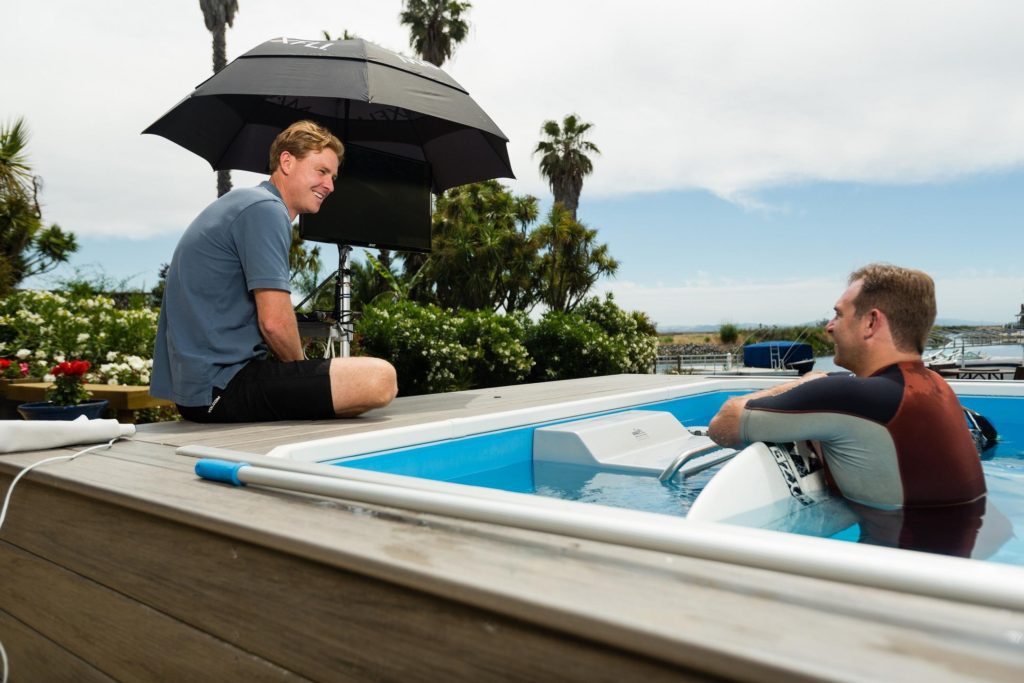
Case is one of many trainers who has expanded their business offerings to include surf parks as the industry demands for people to be better prepared to hit the wave pool. These simple preparations can make the experience of surf parks more enjoyable for customers and increase the chances of repeat customers.
While Case’s main focus is on paddling, he also sees paddling as a bigger element in wave pools than many initially expect. For Case, it’s all about repetition. Figure out how you want to paddle and repeat that over and over again so by the time someone’s in the water they can focus solely on catching waves.

“When you think about the whole wave-catching sequence there’s just so much going on,” said Case. “You’re thinking about when you put your arm in the water, what angle you put your arm in the water or what depth, if you’re thinking about all that stuff you’re not thinking about what the wave is doing. If you have confidence and you know your body can do it automatically, that confidence going into the wave can make up for other mistakes elsewhere.”
There’s strength and then there’s mental strength. You need both.
Cris Mills, who owns Surf Strength Coach, also sees the benefits of extra training as an additional revenue stream for surf parks.
“From a financial standpoint, for the wave pool, if something was offered, some sort of fitness or surf skate training, it’s just another price point for the business,” said Mills.
Mills’ training differs from that of Case. Mills brings a mix of strength training but also incorporates a heavy mental factor for his students. Check out Mills’ Surf Athlete Program here.
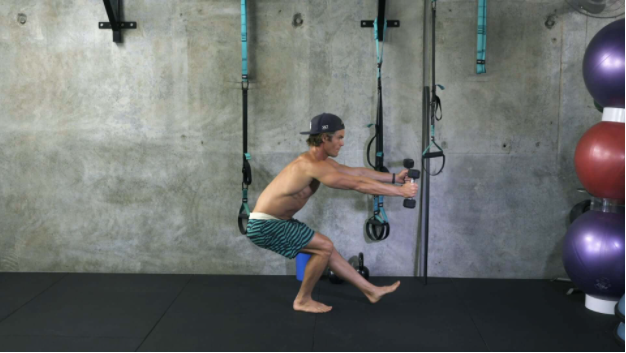
For anyone new to surfing or planning on hitting a lot more waves, like surf parks offer, they need to make sure their endurance is there. That means building up different surf postures to be able to stay in the water longer and paddle harder. Surf parks offer a different experience than the ocean and that means someone with stronger spinal conditioning and other strength training will get more out of the constant wave production offered at a surf park. However, Mills knows being able to crush anxiety while in the water is also a huge element of visiting surf parks.
“Mentally they need to understand what they’re getting into and somewhat alter their expectations,” said Mills. “We get a lot of beginners and they’re exhausted within 30 minutes and they’re shell-shocked by the intensity. It’s a socially pressured scenario in that first session. So to ease things, if there’s just general fitness but to also have this awareness of what they’re getting into.”
Mill’s shared mobility drills that are designed to help you be a better surfer here. Let us know in the comments how they impacted your surf park surf experience.
Technology and pool setups all play a factor.
Case and Mills additionally discussed how different technology and pool setups can create varying experiences at each surf park. To better help guests prepare for this, Mills suggests some steps surf parks can take to help as well as what guests should do to get the most bang for their buck. Click here to watch the two discuss the surf mobility and proprioception training.
“It can be as simple as whether the wave pool has some initial kind of onboarding process, like when people sign up can they get access to a couple of introductory videos of what to expect?,” said Mills. “And always surf more than one session, like two or three sessions if their physical capacity allows for it. That stuff kind of downshifts the mental anxiety around it.”
Simple steps that could provide more success for surf park guests and owners.
“Surf parks provide an amazing emotional experience when the surfer has a really good ride, but the opposite end of that spectrum is frustration and I’ve seen it firsthand, they’re missing waves and falling, and they’re just exhausted,” said Case. “So avoiding that frustration and negative spread of thoughts and emotions with their group is key, so you want to make sure every surfer has a great experience and preparation is part of that.”
So what can surf park operators do to promote positive experiences for their guests? First and foremost they can provide a hands-on guest onboarding process that addresses these anxieties. This begins before a guest even arrives in a park – setting expectations through an onboarding package and marketing that includes exercises to prepare for their session can be the beginning of that best experience.
Once a guest arrives at the surf park the pre-session process can include video analysis of the wave and pool, warm-up exercises, and the creation of a relaxed and comforting space between guest and operators.
Click here to learn more about Surf Strength Coach with Cris Mills





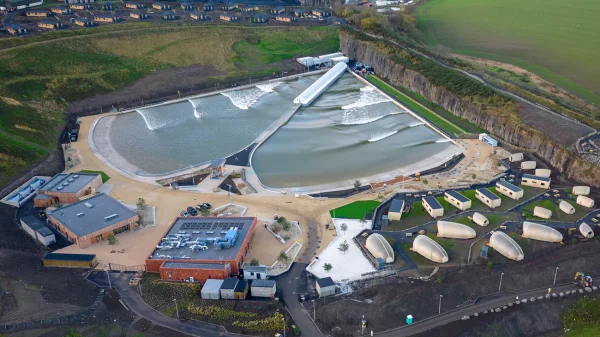
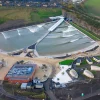
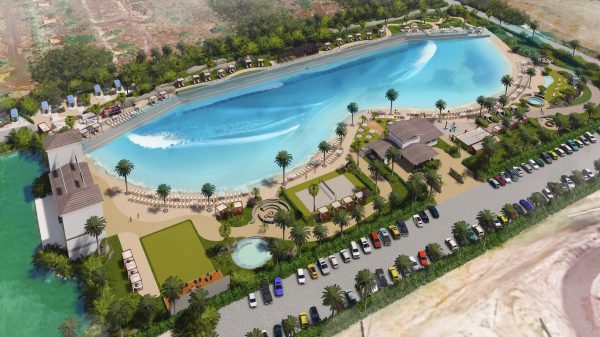
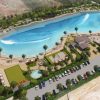
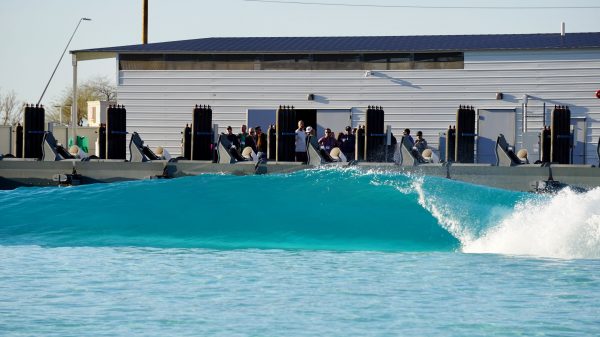
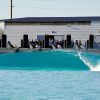
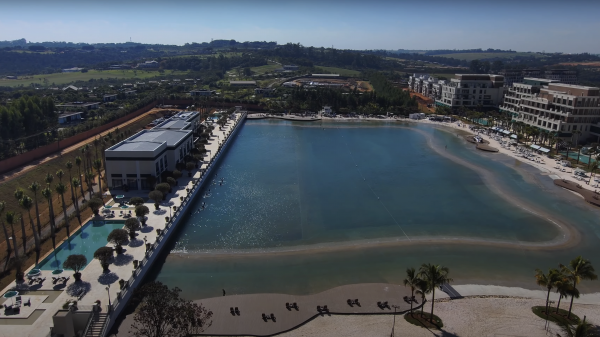
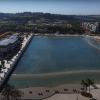
You must be logged in to post a comment Login